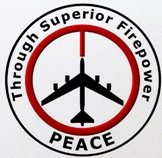Long time ago, on a continent far-far away, there was a beautiful, progressive (in a good sense of the word) and tolerant country. It was a parliamentary democracy. Its President played largely ceremonial role. The leader of the party winning the most seats in parliament would usually become the country's Chief Executive and form a Government. One day the country had elections, and a party favoring socialism (a popular idea at the time) and claiming to represent working class won the most seats in parliament. This party did not win the majority of seats, but it did win the plurality. And, thanks to clever parliamentary maneuvering and coalition building, the party's leader became the Chief Executive of the country's Government. The economic situation was pretty bad, and so this Chief Executive persuaded the parliament to grant him the right to rule by decree. After all, something had to be done quickly to rectify the economic situation. The country's constitution provided for it, and it would be only temporary. In 4 years these extraordinary powers would be reviewed. In fact, they were, but by then the parliament simply extended those powers indefinitely. But I am getting ahead of myself. Shortly after this country acquired this new energetic Chief Executive the country's President died. The new Chief Executive was pretty popular, so the country citizens overwhelmingly voted for him to assume the office of the President as well. After that the Government decreed that the officers of the country's armed forces should swear allegiance not to the country and its people, but to the Chief Executive himself. Now, let's stop and think. Could that be going too far? Perhaps the country's military had a good reason to rebel at this point and remove this Chief Executive from power? But they did not, although there was an opposition within the military to this new regime. By the time the military did make an overt attempt to remove this Chief Executive from power, it was already too late.
In case you haven't guessed it yet, the country in question is Germany. Hitler became Chancellor after free democratic elections. Shortly after that he was granted the power to rule by decree by so-called Enabling Act of 1933. Finally, after the death of President Hindenburg, the German military was required to swear loyalty personally to Hitler. If at that point the German military would have staged a coup and removed a very popular Chancellor from power, the world would have been spared the horrors of World War 2. In fairness I have to say that some people in the German military did try, but not hard enough, and ultimately were not successful. They would, however, have had a better chance early on.
Fast forward to 2009. The country is Honduras. Unlike Germany in 1933, it is a presidential democracy similar to the USA and seems to have separation of powers. And, unlike Nazi Germany after 1938, it has a functioning parliament and a functioning supreme court. The Honduran President was attempting to usurp too much power and was violating the Honduran Constitution. Thus, the country's Supreme Court ruled that the President had to be removed from office and assigned Honduran Military to do the job. The President was replaced by a member of his own party, thus the Opposition did not gain power. Everything was done in accordance with the Honduran Constitution. And yet it was called a coup by our President. That pro-Chavez Organization of American States said that and the dictator-loving UN said that is not surprising. But the United States should know better. Furthermore, even if it were a coup, it still should have been supported. Can anybody imagine condemning Klaus von Schtaufenberg and his co-conspirators for the assassination of Adolf Hitler and the coup if they were successful?
Powered by Qumana

















No comments:
Post a Comment